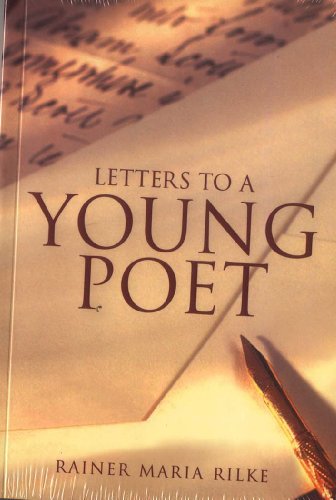Reply to Rilke
by Miles Raymer

My Dear and Honoured Rilke,
I have received your letters
We all did––
Joyce’s “general postoffice of human life” was
Not too late
After all
Your letters, first posted
Then unposted––
Wash us clean across the generations
Bring us the quiet and careful wisdom
You sought in
Solitude
Criticism won’t bring us near to art
You tell us––
Yet it can be “one of your best workmen
If you train it”
I have trained it
I have tried, anyway
Still, I offer none
Confronting the unutterable, then
Perhaps––
Will take us inward
To glimpse the truth and time
And tenderness you gifted
To a young man
Us to all
In God you found Man
And in Man God––
“The final fruit of a tree
Whose leaves we are”
This future God is
The first ever
I could accept
These verses feel poor payment
As if a debt is owed––
Such artful economics brim
With failure
Yet this mode of tribute, somehow
Must be enough
For me if not
For you
I will now back to my abyss
Yet never––
Forgetting “those old myths”
To which you now
Belong
I hope your final solitude
Is full
You wrote that poem?
Over 100 billion galaxies, or so we’re told. “In god you found man
And in man god.”
Sounds about right.
Yep, I wrote it!
If you’re interested, here’s the passage from Rilke that inspired the God/Man bit:
“Why do you not think that he who draws near from all eternity is still to come, that he is in the future, the final fruit of a tree whose leaves we are? What prevents you from throwing forward his truth into times yet to be, and living your life as a painful and beautiful day in the history of a great gestation? Do you not see, then, how everything that happens is for ever a beginning, and might it not be His beginning, since beginning is in itself always so beautiful? If he is the most perfect, must not the inferior precede him, that he may choose himself out of abundance and profusion?––Must he not be the last, in order to embrace everything within himself, and what sense should we have if he for whom we crave had already been?
“As bees collect honey, so we take what is sweetest out of everything and build Him. We start actually with the slight, with the unpretentious (if only it is done with love), with work and with resting after it, with a silence or with a little solitary joy, with everything that we do alone, without helpers or adherents, we begin him whom we shall not experience any more than our forefathers could experience us. And yet they are in us, those who have long since passed away, as natural disposition, as burden on our destiny, as blood that throbs, and as gesture that rises up out of the depths of time.
Is there anything which can take from you the hope of us being hereafter in him, in the most distant, the uttermost?” (29-30)
I’m afraid i’ve never been very good at fathoming Mr. Rilke, having pored over the Duino Elegies. I’m a simple guy, he seems like the density of uranium… i’m better with carbon. “Do you not see, then, how everything that happens is for ever a beginning, and might it not be His beginning, since beginning is in itself always so beautiful? If he is the most perfect, must not the inferior precede him, that he may choose himself out of abundance and profusion?––Must he not be the last, in order to embrace everything within himself, and what sense should we have if he for whom we crave had already been?” Huh??
In that passage, I think he’s saying that God, being a kind of perfection, can only be in the future, something yet to come. We are the “inferior” that “precede him,” but we also get the opportunity to participate in “building Him,” as Rilke says later in the quote. I think he’s saying that God is essentially the good future that humans can build if we realize our full potential––a scenario in which God would be able to “choose himself out of abundance and profusion” that we had created.
Well that makes sense. But why didn’t he just say that?
Thanks for explaining.
Old stuff be old. You gotta learn to decode it. I basically got a degree in that, remember? 😉